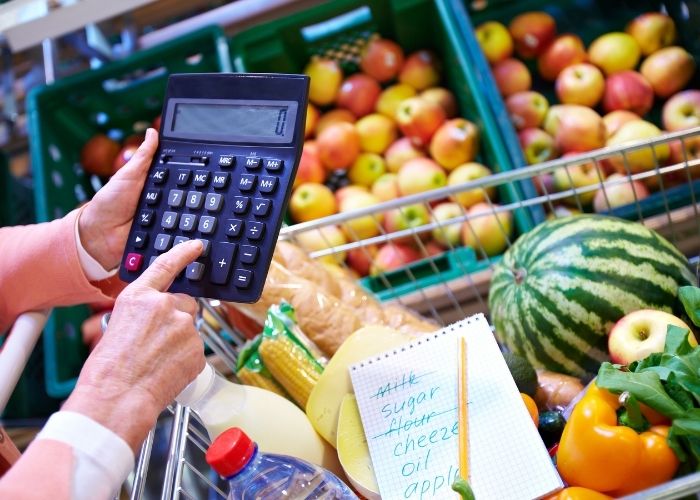MADRID – The energy crisis and the war in Ukraine have pushed inflation to record highs in Spain. In March, the Consumer Price Index (CPI) was 9.8% above last year, the highest level since May 1985.
Over the last six months, there has been sharply increasing inflation and a price crisis. However, it seems there is no end to this for the time being. The almost 10% increase in prices compared to March last year is a preliminary estimate by the Spanish statistical office INE.
The year-on-year increase in March is also 2.2% higher than that of February. Then the CPI was 7.6% higher than in February 2021. This increase of more than 2 percentage points between two consecutive months is also something Spain has not seen since the Constitution was approved in 1978.
No details on pricing specific products
INE is not yet providing details on the price increases of specific products. That information will follow on April 13. However, the institute has explained this price development is the result of ‘general price increases’ in most components that make up the CPI. In addition, INE highlights the increase in prices for electricity, fuels, foodstuffs, and non-alcoholic drinks. All those products are much more expensive than a year ago.
Inflation figure “once a bad fact”
The Spanish prime minister has already said he sees inflation of 9.8% as “a bad fact” that “affects our economy and the most vulnerable sectors”. Pedro Sánchez added: “73% of the price increases are explained by the runaway price of energy and unprocessed food and all this exacerbated by the war”. The president is “convinced” that “the agreement in Brussels and the national crash plan will allow the government to bend the curve shortly”.
Why are the prices rising?
While INE does not provide specific details about which products have become more expensive and how much, the evolutions in the energy and raw materials markets provide clear indications as to the cause of the pain.
In March, wholesale electricity prices averaged €285 per megawatt-hour. That makes this month the most expensive in history.
Fuel
Something similar has happened with the price of gasoline, which is also running rampant. According to figures from the Ministry for the Ecological Transition, the price for petrol 95 this month was an average of €1.799 per litre. That is an increase of 13% compared to February. In the case of diesel, this is an increase of 20%, from €1.475 per litre to €1.770.
Food prices
While food and drink prices aren’t exactly clear yet, they are certainly no cause for optimism. The price of important commodities for the food chain, such as wheat or fertilisers, has soared after the Russian invasion of Ukraine. This, on top of the worsening energy crisis that has been going on for several months, has led companies to raise prices to offset cost increases.
Decrease in purchasing power
One of the most tangible effects of high inflation is the sharp decline in purchasing power. According to the latest data from the Ministry of Labour, wages rose on average by just 2.2% year-on-year in February. This is compared with a price increase of 7.6% in the same period. If the trend of wage growth continues in March, the loss of purchasing power for workers will be even greater.
In addition, lower-income households spend a higher percentage of their income on paying electricity and food bills than higher-income households. This means that their leeway is very limited with rising prices.


